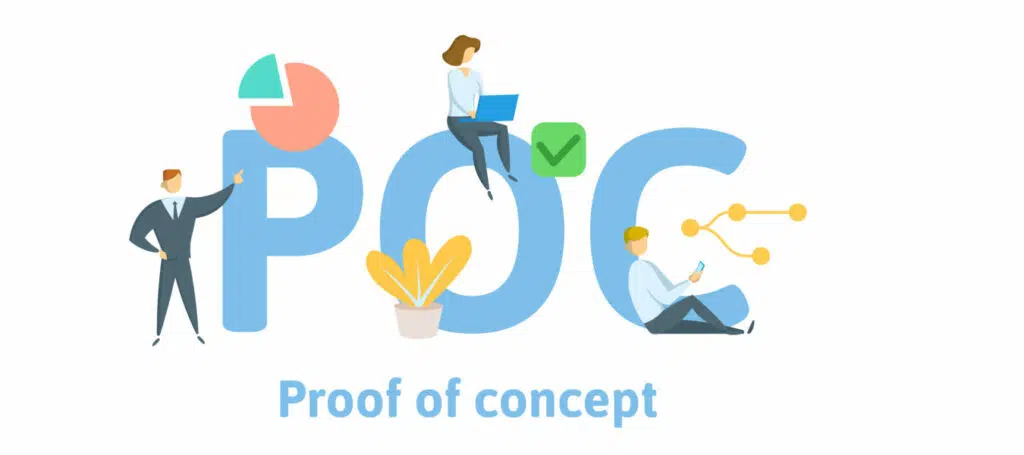Netherlands’ Top 4 Government Grants For Startups [2025]

The Netherlands are one of the world’s most attractive country for startups. There are indeed a number of public grants startups can receive, to start off or scale up, no strings attached. So, what are Netherlands’ top 4 public grants for startups? Is your company eligible? How much money can you actually receive?
In this article we’ll look into what are the top startups grants in the Netherlands, they are:
#1: Innovation Credit (Innovatiekrediet)
Innovatiekrediet (IK) is arguably the most famous Dutch grant for startups as.
It isn’t free money though: as its name suggests, IK is a loan funded by the government to promote high risk, technological and innovative projects in the Netherlands.
IK is meant to fund projects such as clinical trials, market validation and testing. Also the projects must lead to a marketable product, process or service within 5 years maximum.
Yet, like most loan grants, note that the loan isn’t meant to fund 100% of the project. Instead, the loan should cover up to 45% of the project expenses. Also, the project size must be at least €150,000.
Finally, if the project is successful (the product is commercialised for example), the loan must be repaid and the interest rate ranges around 7% annually.
Eligibility criteria
To be eligible you must meet the following requirements (full list in Dutch here):
- Business must be incorporated in the Netherlands
- Project must be innovative and lead to a marketable product, process or service within 5 years
- Project must contribute to the Dutch economy
- Business (or an external investor) must contribute the other of financial resources (the 55%)
Interested? Apply here.
#2: Proof-of-concept funding (Vroegefasefinanciering)
Vroegefasefinanciering (VKK) is another of Netherlands’ loan grants for startups.
Unlike the Innovation Credit (IK), VKK is for smaller businesses and entrepreneurs that need funding to assess whether their idea is market-ready.
Unlike IK, the loan can cover up to 100% of the projects though. The size of the loan ranges anywhere from €50,000 to€350,000.
Note you must repay the loan if the project is successful at an interest rate of 4.55% (as of 2021).
Eligibility criteria
To be eligible you must meet the following requirements:
- Have a business plan showing substantial future growth
- Have a declaration of intent of an external future investor for at least the same amount as the subsidy itself
- The proof-of-concept mustn’t be established yet (that’s the purpose of the grant). So, for example, funding for selling prototypes isn’t covered as part of the VKK grant
Interested? Apply here.

#3: Feasibility Projects (MIT)
Feasibility Projects (MIT) grant is one of Netherlands Enterprise Agency’s (RVO) program that aims to support entrepreneurs, companies and organizations to invest in innovative projects.
There are actually 2 separate grants:
- RVO MIT Haalbaarheidsstudie for projects that aims to assess the feasibility of an innovation project. The subsidy is €20,000 and cover up to 60% of the total project’s costs. Expenses that fall under the scheme are, for example: market research, competition analysis and patent research
- RVO MIT R&D samenwerkingsprojecten for industrial research and/or experimental development projects. The funding is anywhere from €50,000 to €350,000 and mustn’t cover more than 35% of the total project’s costs
Check about eligibility requirements and what type of expenses you can finance with the MIT grants by visiting RVO’s website.
#4: WBSO (R&D tax credit)
WBSO (short for “Wet ter Bevordering van Speur- en Ontwikkelingswerk”) is a tax incentive to promote businesses investing in research & development (R&D).
In simple terms, any eligible business can claim qualifying R&D expenses under the R&D tax credit scheme. In return, companies receive up to 40% of qualifying R&D expenses as a tax credit.
The resulting tax credit is then used to offset payroll taxes.
The rate you can claim against your R&D expenses depends on a number of criteria. You can claim:
- 32% under €350,000 R&D costs; and
- 16% above €350,000 R&D costs
Note that businesses incorporated less than 5 years ago such as most startups can instead benefit from 40% on the first €350,000 R&D costs (and 16% beyond that).
Want to know more about WBSO and what it means for your business? Read our complete guide on Netherlands’ R&D tax credit (WBSO) here.
Eligibility criteria
Virtually all companies and entrepreneurs can qualify for the WBSO R&D tax credit. Instead, the question is more: what R&D costs can you claim?
The R&D expenses that can claimed need to be incurred as part of an innovative project that meet the following conditions:
- Project must develop a product, process or software program
- The product developed must be a new product
- R&D must be conducted within the EU
See more on the criteria on Netherlands Enterprise Agency’s(RVO) website here.

More Resources For Dutch Startups
We have lots of free resources for Dutch startups. Have a look at our articles below:





